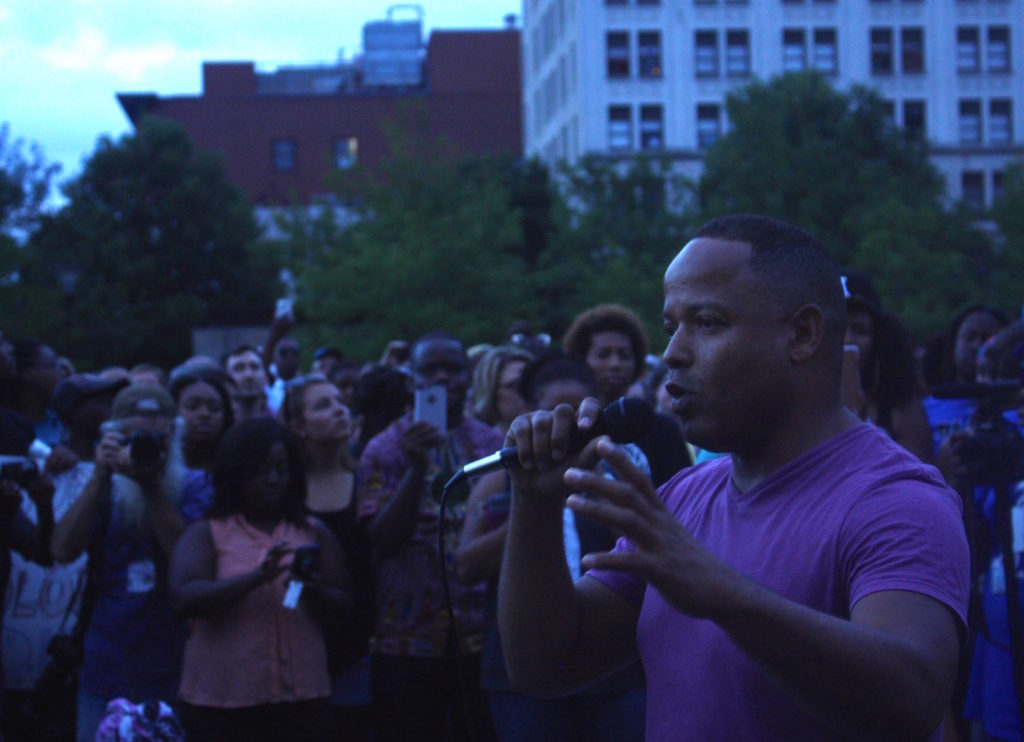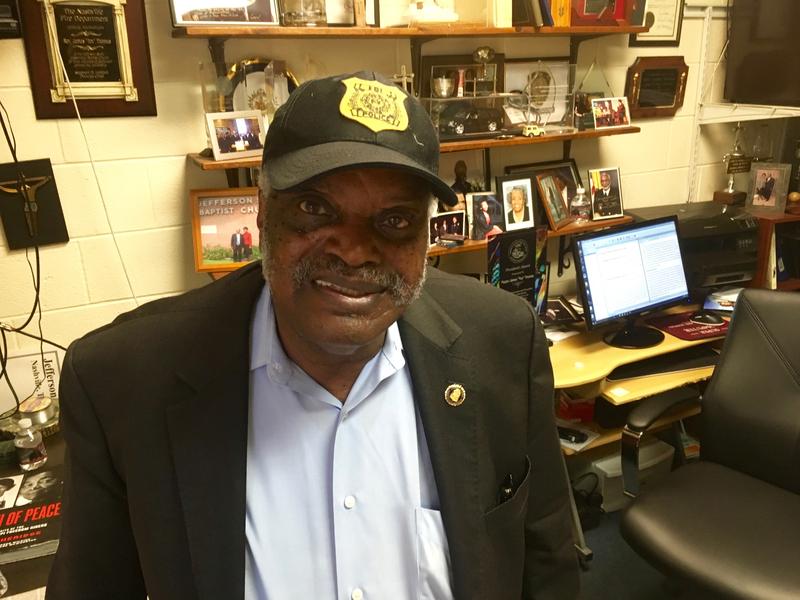
There have been some unfamiliar faces leading Black Lives Matter rallies. They represent a new generation of activists in Nashville. And they’ve been intentional about separating themselves from groups that rose to prominence in the Civil Rights Movement.
At times, their language has pushed the boundaries of what might be officially sanctioned by the NAACP or Urban League.
“The thing that we need to address is the brutal legacy of white supremacy,” pastor Keith Caldwell told the crowd at a rally over the weekend. “Let’s name it. People cringe when you say that.”
Caldwell is one of the few
Nashville organizers for Black Lives Matter who has worked closely with long-standing African-American institutions. He says they have “enormous credibility” and a “tremendous legacy.”
“But they are institutions. And often times they become concerned with their own sustainability and how can they save themselves,” he says. “Sometimes the prophetic voice is muted because of budgets and grants and fundraising.”
In some ways, the generational struggle mirrors the 1960s, when students launched sit-ins at lunch counters because the NAACP was deemed
too slow-moving and legalistic. Activists who were lunch counter sit-in participants are now part of the power structure, Caldwell says.
“That’s not to say they compromised. But it’s just the evolution,” he says. “Black Lives Matter challenges internally other sectors of the African-American community, particularly the black middle class, who has gotten comfortable.”
Some of those accused of playing it safe have watched from the sidelines as Black Lives Matter stops traffic with their rallies.

“Shutting down streets and walking into buildings are two different things,” says Rev. James “Tex” Thomas, the long-time pastor of Jefferson Street Missionary Baptist Church.
He says chants and marches only take a movement so far. At some point, they have to enter the halls of power, like the courts and the legislature.
“You need to have somebody in there to talk to the governor, talk to the mayor, to talk to that police chief,” Thomas says. “You’re not going to have it unless someone in that movement takes the lead and starts dialogue where the powerful folk are.”
Despite the critique, Thomas says he’s encouraged by the enthusiasm of Black Lives Matter. He makes an Old Testament analogy from Exodus.
His generation was like Moses leading the Israelites out of Egypt. But ultimately, Moses was kept out of the Promised Land and another leader was selected — Joshua.
“I look at this group as the ones that are leading us to the Promised Land.”


